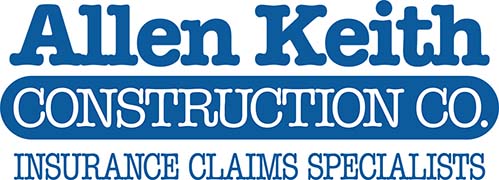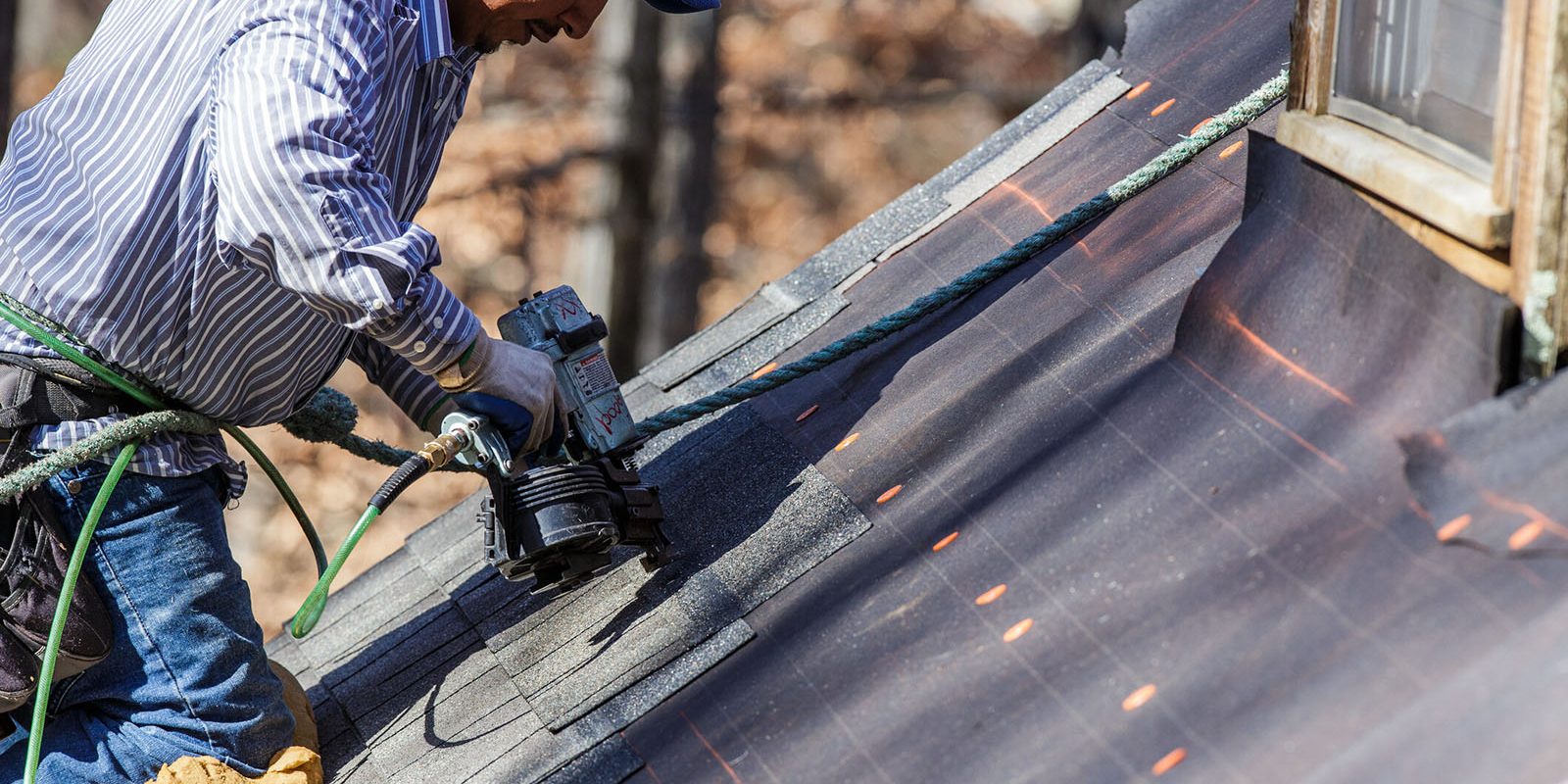Repair or Replace Roof Guide: Making the Right Roofing Decision
When maintaining your home, the roof plays a crucial role in protecting your investment. Deciding whether to repair your roof or replace it with a new roof can be challenging for homeowners, especially considering the potential impact on the entire roof and the cost of a full replacement. To make an informed decision, it’s essential to have a clear understanding of the various factors involved, from assessing the extent of the damage to the condition of the underlying roof deck. In this article, we’ll delve into the world of roof repair and replacement, providing valuable insights that will help you make the best home choice.
Whether you’re dealing with a leaky roof, missing shingles or more extensive damage, a professional roof inspection is one of the first steps in addressing the issue. A thorough assessment by a qualified roofing expert will help determine the extent of the damage and whether a simple repair, replacing roofing material by installing new shingles, or an entire roof replacement is necessary. This inspection will also evaluate the condition of the roofing materials, ensuring that any repair or replacement options align with the current state of your roof.
With the knowledge gained from a comprehensive roof inspection, homeowners can weigh the pros and cons of roof repairs and replacements. Understanding the benefits and drawbacks of each option will enable you to make a well-informed decision that not only addresses the immediate issue but also contributes to the long-term health of your roof. No matter the choice, a properly repaired or replaced roof will provide the protection and peace of mind you need to enjoy your home for years.
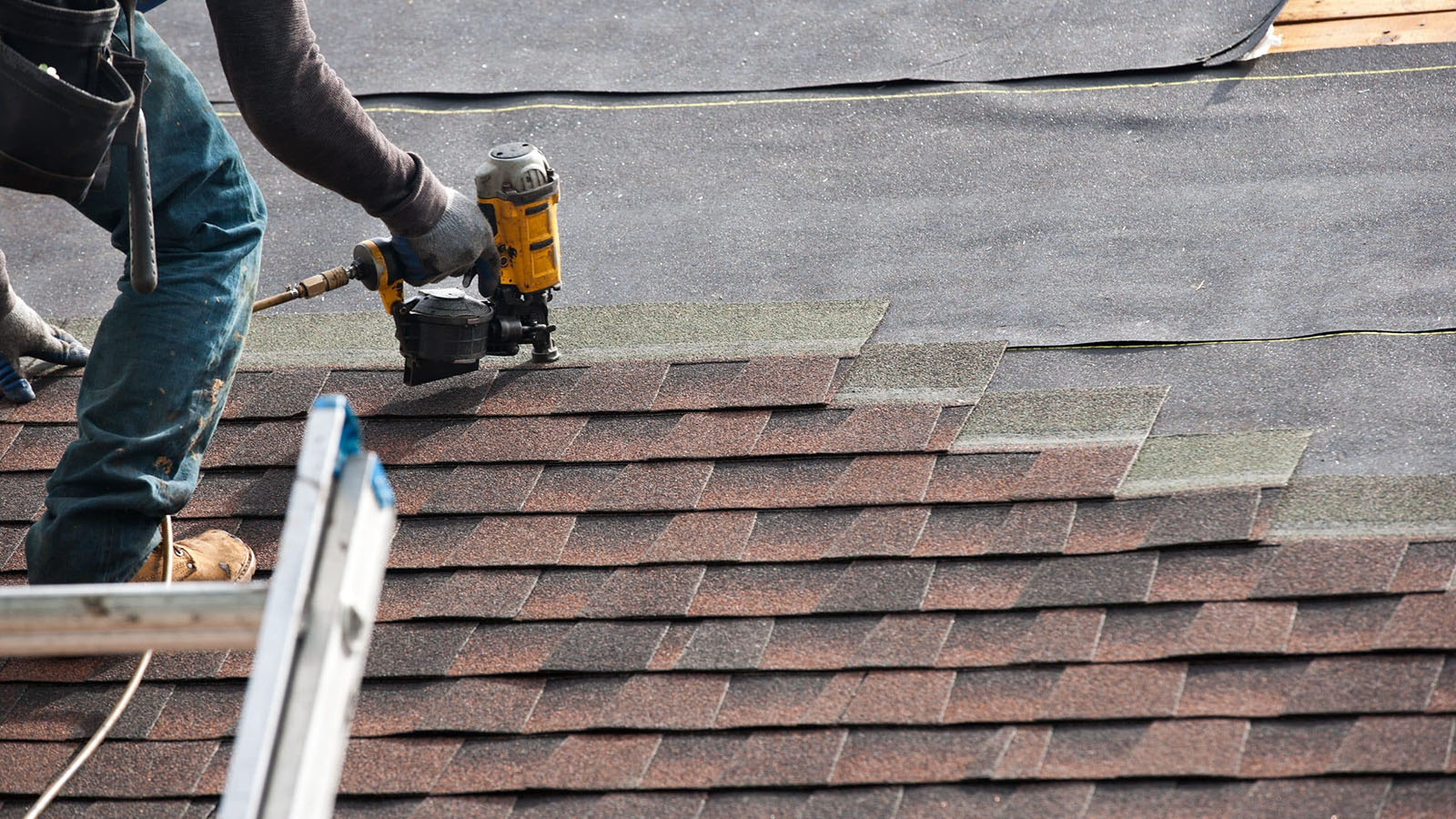
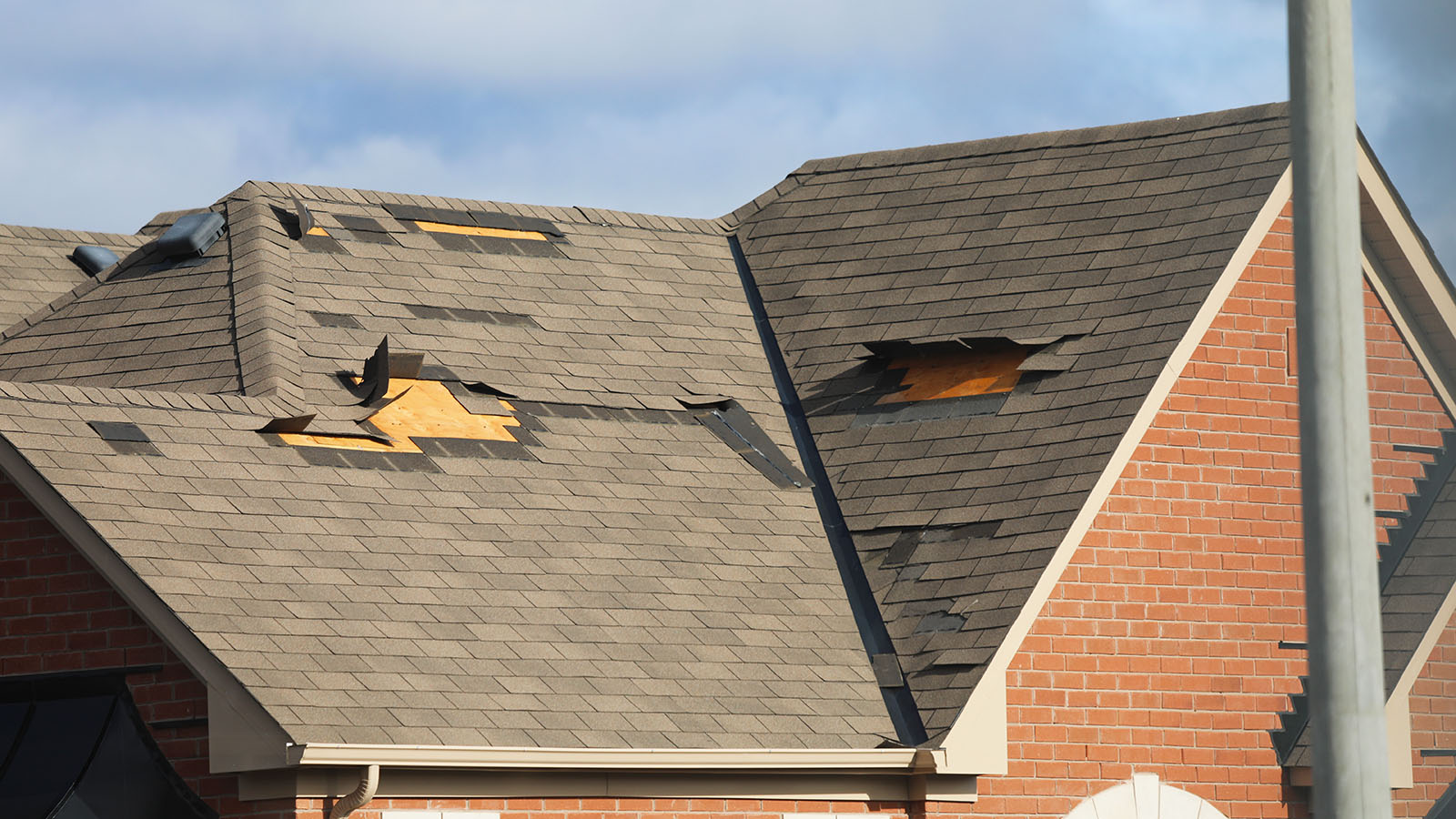
Introduction to Roof Repair and Replacement
A well-maintained roof is essential to protect your home from the elements, preserve its structural integrity, and maintain its curb appeal. When damage occurs to your roof, you’ll be faced with whether to repair or replace it. By considering factors such as the extent of the damage, the age and condition of your current roof, and the costs involved, you can make a more informed choice.
The Importance of a Well-Maintained Roof
A properly maintained roof not only enhances the aesthetic value of your home but also prevents future damage to the structure. Regular maintenance, such as cleaning gutters and addressing minor damage, can help prolong the life of your roof and save you money in the long run.
Understanding the Repair vs. Replacement Decision
When deciding whether to repair or replace your roof, it’s important to consider the damage’s severity, the roofing materials’ age and condition, and the costs involved. Repairing your roof might be the best option if the damage is confined to a small area, while a complete replacement might be necessary if the entire roofing system is compromised.
Factors to Consider when Choosing
To determine the best course of action for your roof, consider the extent of the damage, the age and condition of your roofing materials, and the costs involved in repair and replacement.
Factors to consider when choosing between the two options:
- The extent of the damage
- Age and condition of the roofing materials
- Costs involved in both repair and replacement
A thorough inspection by a trusted roofing contractor can provide valuable insight into your situation’s best solution.
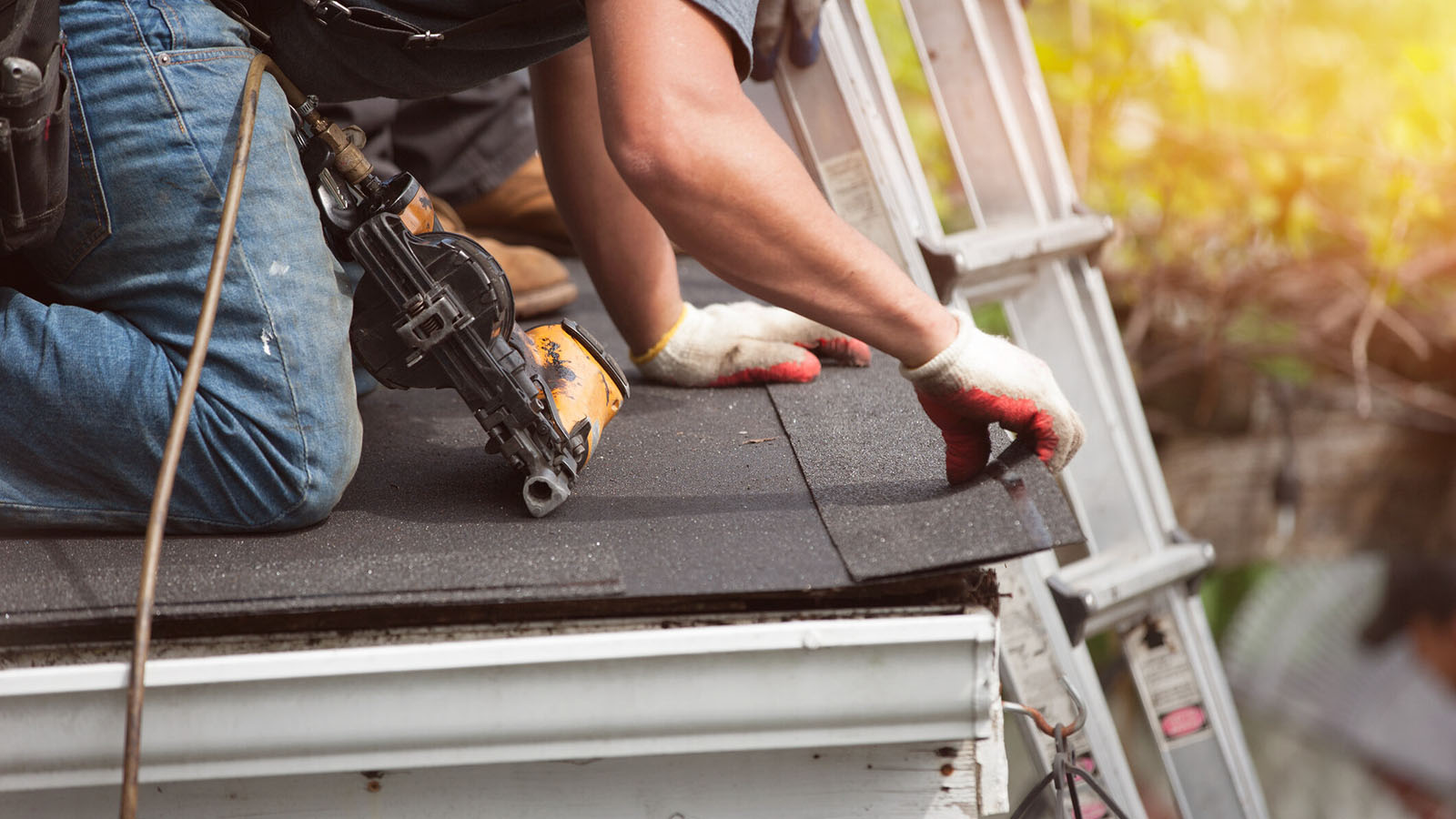
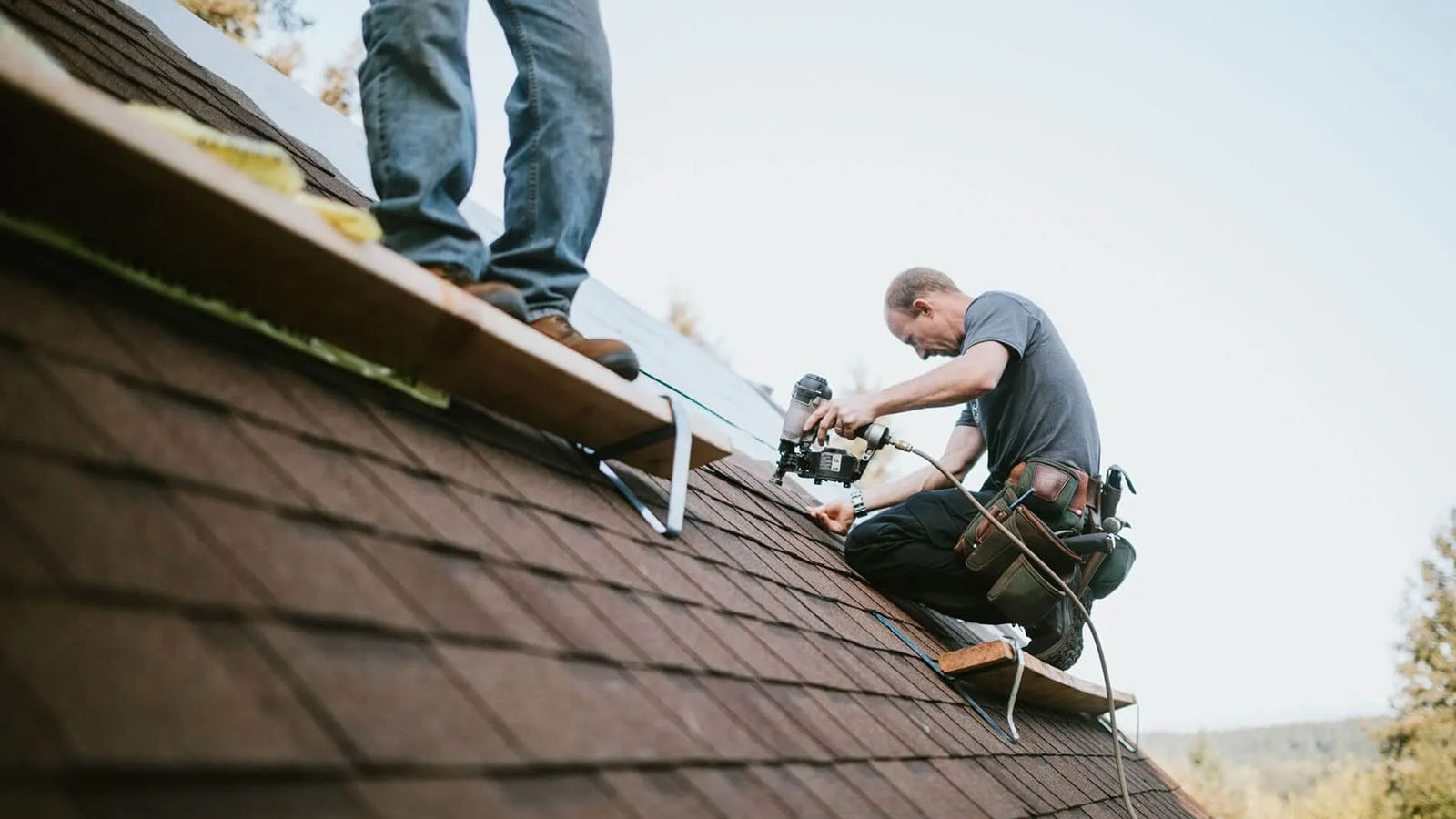
Identifying Roof Damage and Common Issues
When it comes to your home’s roof, understanding the different types of roofing materials and their respective lifespans is crucial for making informed decisions about repair or replacement. With a variety of materials available, each offers unique benefits and lifespans. Choosing the right material for your home will affect its appearance and durability and play a significant role in determining when repairs or replacements may be necessary. By familiarizing yourself with the lifespans of various roofing materials, you can be better prepared to take action when signs of damage appear.
Roof damage can happen unexpectedly and for various reasons, such as high winds, hail, and the natural aging of materials. Regular roof inspections are vital to prevent minor issues from escalating into more significant, costly problems. By scheduling periodic inspections with a roofing company, you can stay ahead of any potential damage and maintain the longevity and efficiency of your roof. These experts will help identify any signs of damage and recommend the appropriate course of action, ensuring your home remains protected and well-maintained throughout the years.
Types of Roofing Materials and Their Lifespan
Different roofing materials have varying lifespans, with asphalt shingles typically lasting around 20 to 30 years, metal roofs lasting 40 to 70 years, and clay or concrete tiles lasting 50 or more.
Types of roofing materials and their lifespan:
- Asphalt shingles: 20-30 years
- Metal roofs: 40-70 years
- Clay or concrete tiles: 50+ years
The age of your roofing materials can play a significant role in deciding whether to repair or replace your roof.
Signs of Roof Damage
Some common signs of damage include missing, damaged, or curling shingles; leaks or water stains in your attic or ceilings; and peeling paint or water damage on exterior walls.
Signs of roof damage:
- Missing, damaged, or curling shingles
- Leaks or water stains in your attic or on your ceilings
- Peeling paint or water damage on exterior walls
If you notice any of these issues, it’s crucial to consult a professional roofing company to assess the extent of the damage and recommend the best course of action.
The Role of Regular Roof Inspections
Regular roof inspections can help identify potential issues early, allowing you to address them before they become more severe and costly to repair. A professional roofing contractor can spot signs of damage, such as missing or damaged shingles, leaks, and structural problems, and recommend the appropriate repairs or replacement.
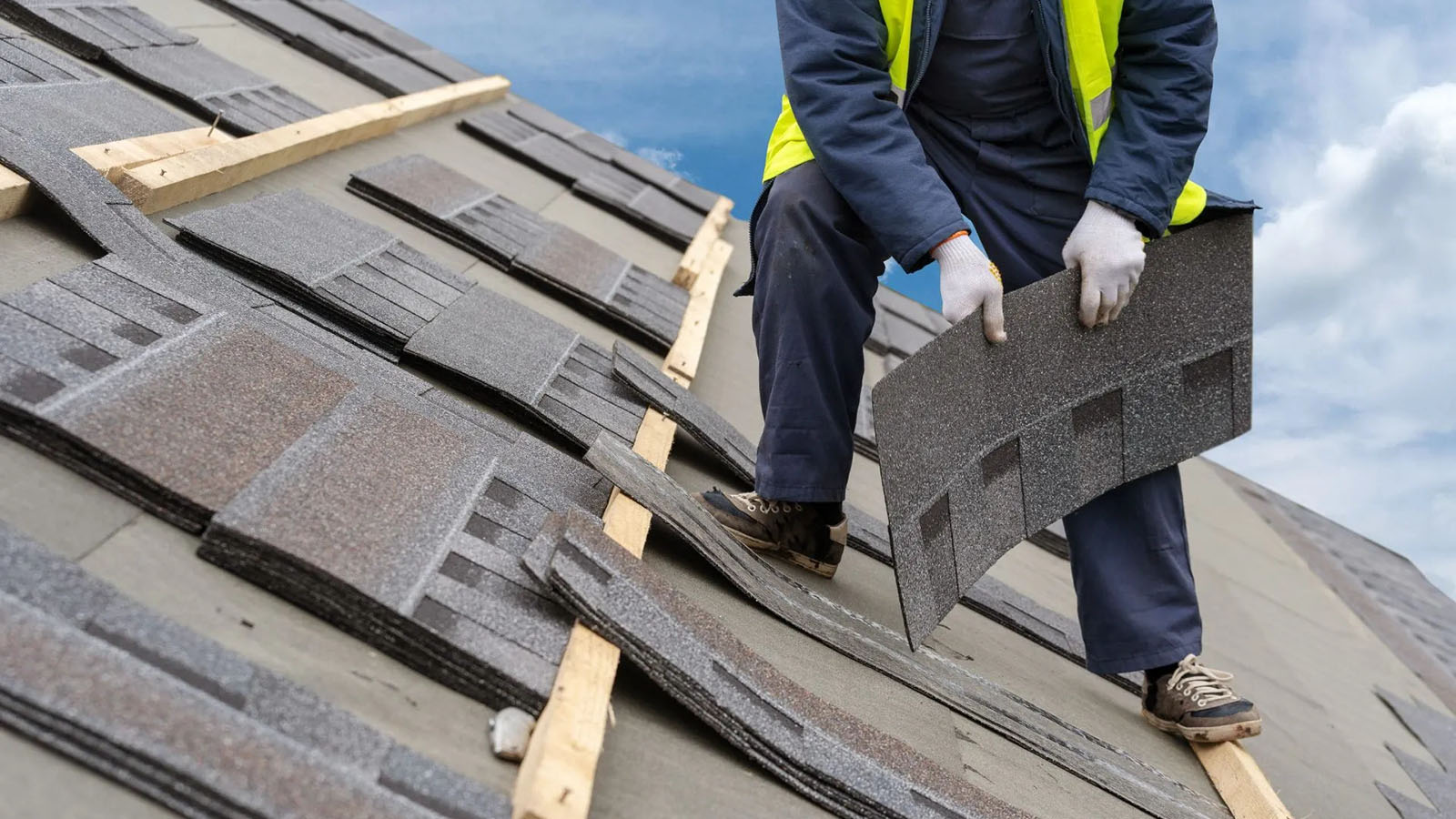
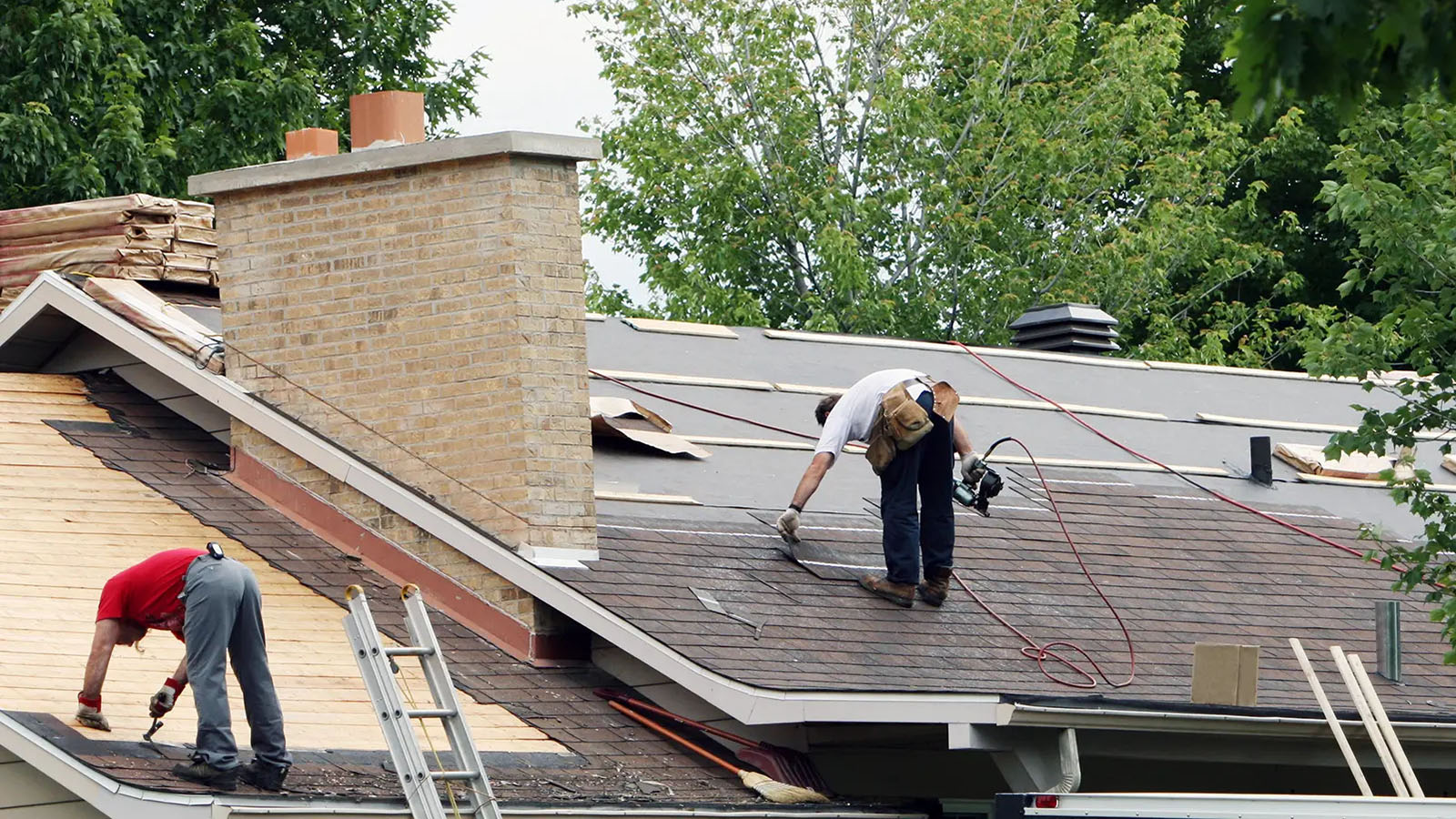
Roof Repair: Pros, Cons and Considerations
Roof repair is often considered a cost-effective solution for minor to moderate damage. Homeowners may opt for repairs as an alternative to a complete roof replacement, particularly when the damage is isolated and not widespread. However, it is important to weigh the pros and cons of a roof repair before deciding if it’s the right choice for your situation. In the following sections, we’ll dive deeper into the advantages and disadvantages of roof repair and when it’s more appropriate to choose repairs over a full replacement.
Understanding roof repair’s potential benefits and drawbacks can help homeowners make informed decisions about the best course of action for their specific roofing issues. By considering factors such as cost, time, and the extent of the damage, homeowners can determine whether a roof repaired by a contractor is the most suitable solution or if a complete replacement might be a more prudent choice. Read on to learn more about the advantages and disadvantages of roof repair and when it may be the best option for addressing your roofing concerns.
Advantages of Roof Repair
Some advantages include lower costs compared to a complete roof replacement, faster completion times, and the ability to address isolated damage without affecting the entire roofing system.
Advantages of roof repair:
- Lower costs compared to complete roof replacement
- Faster completion times
- Ability to address isolated damage without affecting the entire roofing system
Additionally, repairing your roof can extend its lifespan and help prevent future damage.
Disadvantages of Roof Repair
On the downside, roof repairs may only offer a temporary solution if the underlying problems are not adequately addressed.
Disadvantages of roof repair:
- May only offer a temporary solution if underlying problems are not addressed
- Potential for higher costs in the long run if multiple repairs are needed
Also, if the damage is widespread, a repair might not be sufficient, and you could end up spending more money on multiple repairs rather than opting for a complete replacement.
When to Choose Roof Repair Over Replacement
Roof repair is typically the best choice when the damage is confined to a small area, such as a few missing or damaged shingles, minor leaks, or small gaps around vents or chimneys. A professional roofing contractor can assess the extent of the damage and determine if a repair is the best course of action.
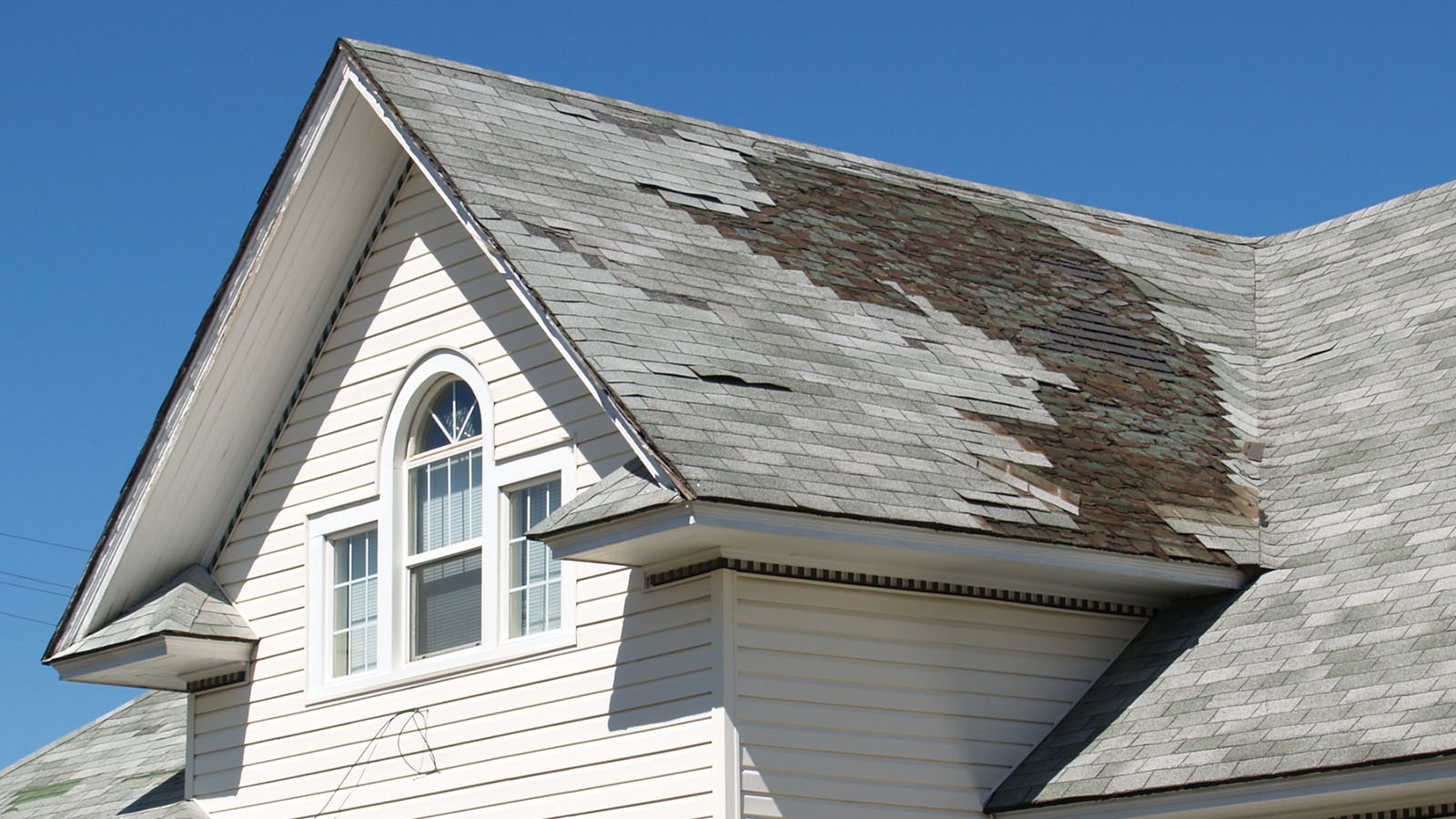
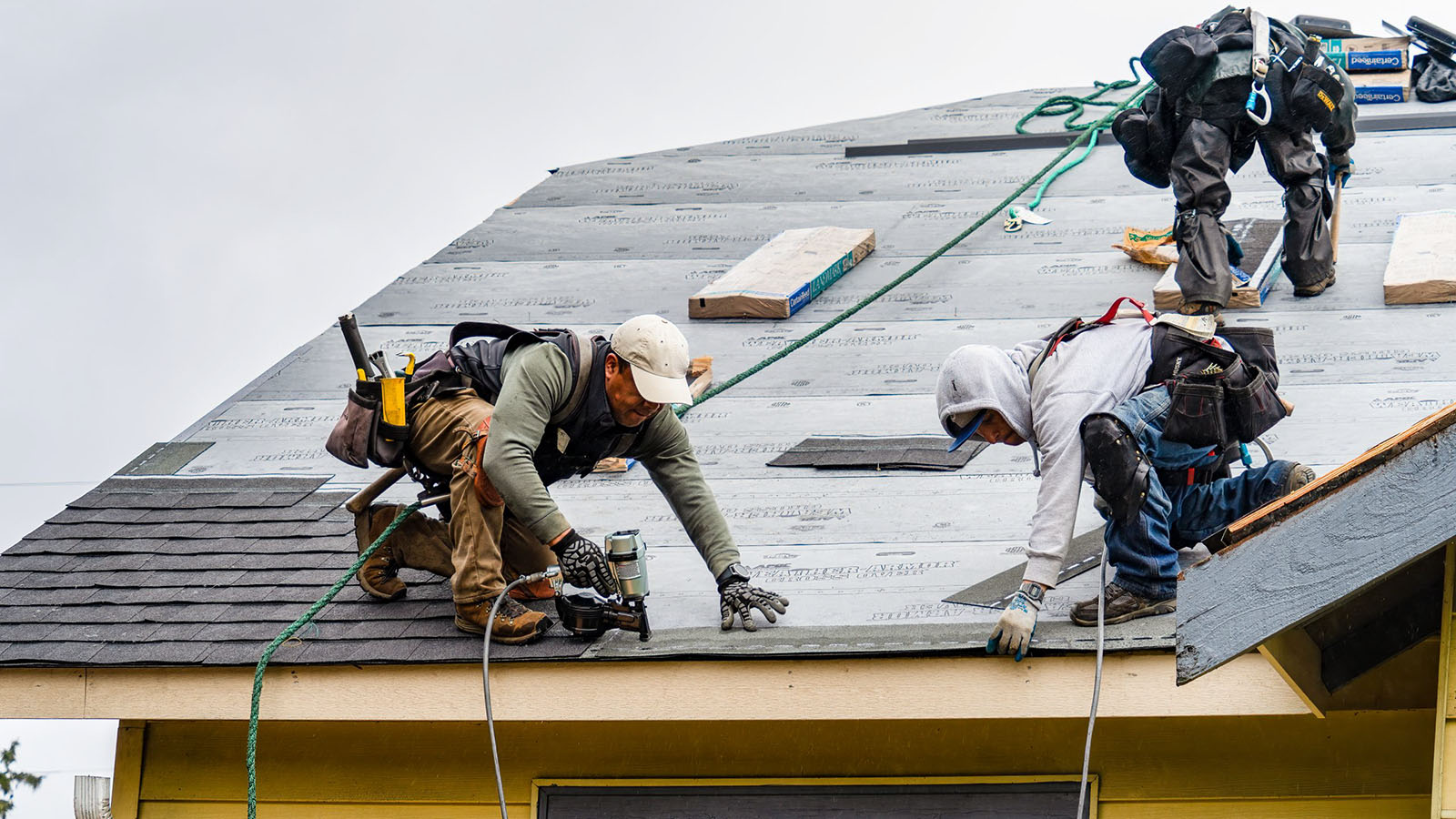
Roof Replacement: Pros, Cons and Considerations
Roof replacements can be a wise investment when considering your home’s long-term benefits and value. While the initial cost may be higher than a repair, the numerous advantages that come with a new roof can make it a more viable and beneficial solution, particularly if your current roof has reached the end of its life or has sustained extensive damage.
In light of a replacement’s myriad advantages, weighing these benefits against the initial costs and potential disruption is essential. By taking into account the long-term protection, energy efficiency, and aesthetic enhancements that a new roof can provide, you can make a well-informed decision on whether a total roof replacement is a right choice for your home.
Advantages of Roof Replacement
A new roof can provide better protection against leaks and other issues, improve your home’s energy efficiency, and increase curb appeal.
Advantages of roof replacement:
- Better protection against leaks and other issues
- Improved energy efficiency
- Increased curb appeal
Additionally, a roof replacement can offer peace of mind, knowing your home is protected for years.
Disadvantages of Roof Replacement
The main disadvantage of roof replacement is the higher cost compared to repair.
Disadvantages of roof replacement:
- Higher cost compared to a repair
- More time-consuming and disruptive to daily life
Additionally, the process can be more time-consuming and disruptive to your daily life.
When to Choose Roof Replacement Over Repair
Roof replacement is typically the best choice when your existing roof has reached the end of its lifespan, the damage is extensive or affects the entire roofing system, or when you want to upgrade to more energy-efficient or durable materials. A professional roofing contractor can help you determine if a complete replacement is the best option.
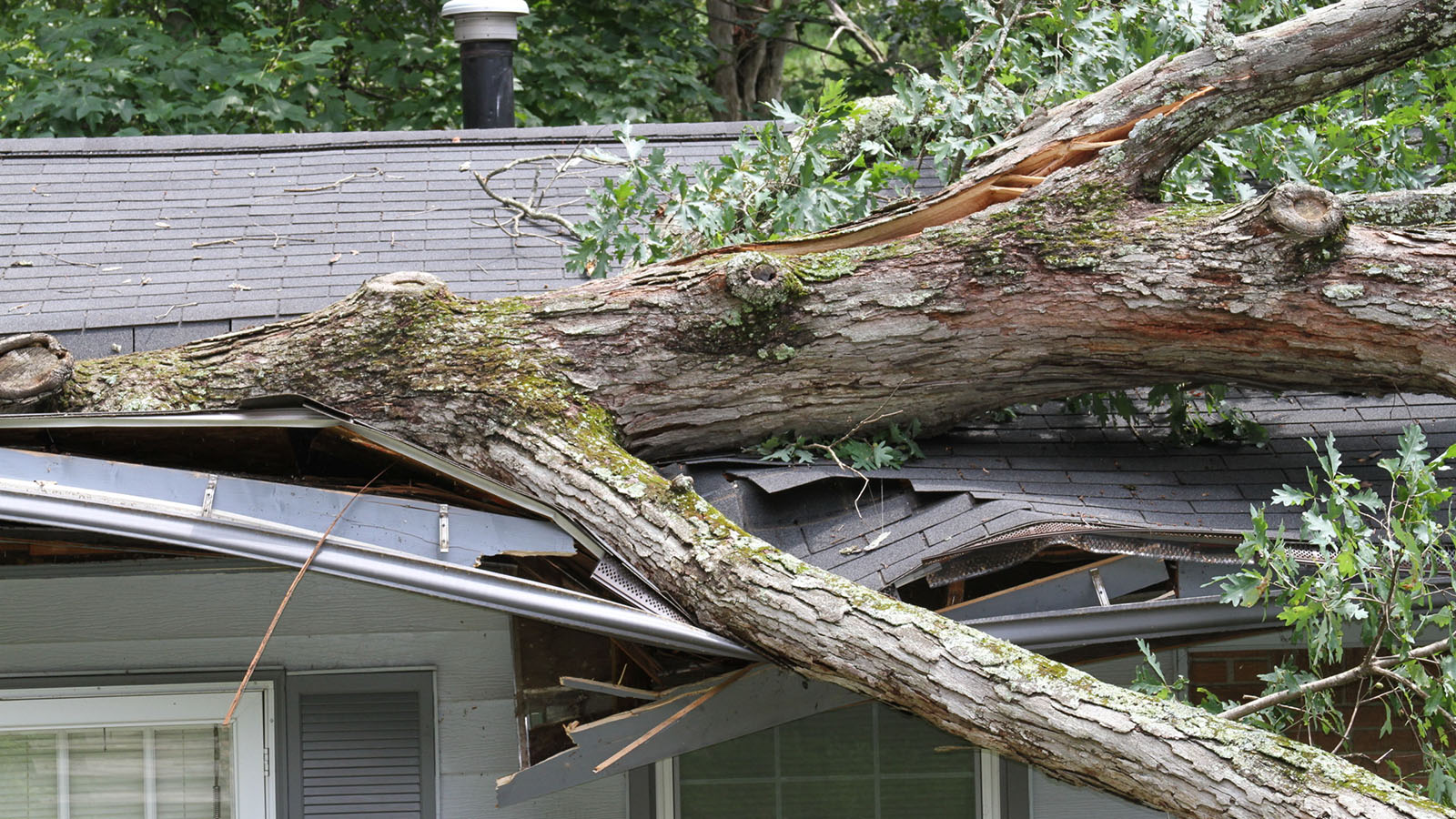
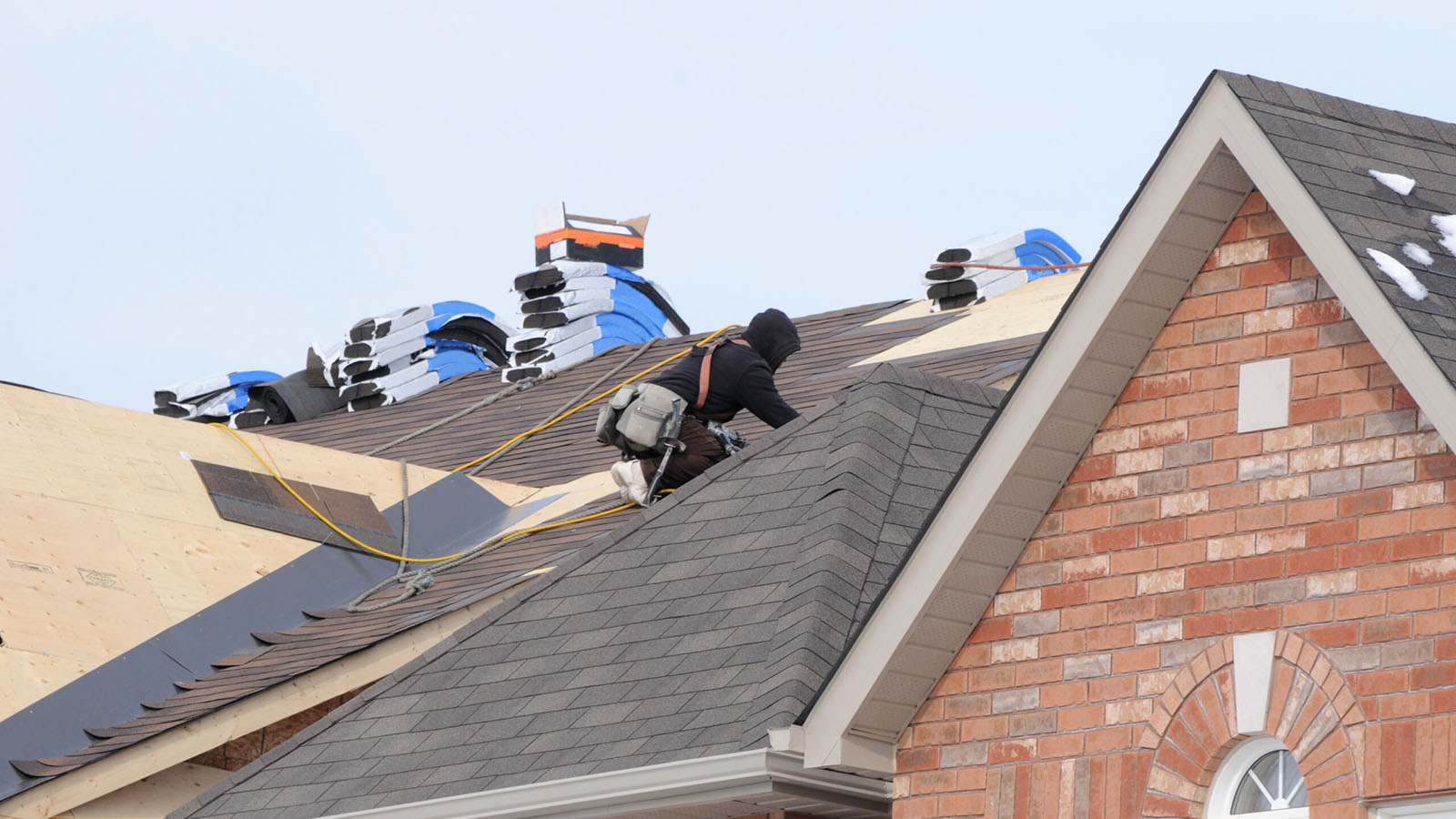
Financial Aspects: Cost Comparison and Budgeting
When facing the decision to repair or replace your roof, it’s crucial to have a clear understanding of the costs involved for each option. This allows you to make an informed decision that aligns with your budget and ensures your home remains well-protected. Before diving into the specific costs associated with roof repair and replacement, it’s essential to consider factors such as the extent of the damage, the type of materials involved, and any potential insurance coverage or financing options that may be available to you.
Evaluating these aspects will enable you to effectively weigh the financial implications of repairing or replacing your roof. In the following sections, we will provide an overview of the typical costs associated with roof repair and replacement and how insurance and financing options can play a role in your decision-making process. By assessing these factors in relation to your budget, you’ll be better equipped to choose the most suitable solution for your home’s needs.
Estimating the Cost of Roof Repair
The cost of a repair varies depending on the extent of the damage, the roofing material options and labor costs. Small repairs, such as replacing a few shingles or fixing minor leaks, can range from a few hundred to a few thousand dollars.
Estimating the Cost of Roof Replacement
The roof replacement cost depends on factors like the size of your roof, the type of roofing materials used, and labor costs. Roof replacement costs can range from several thousand to tens of thousands of dollars, depending on the specifics of your project.
The Role of Insurance and Financing Options
In some cases, your homeowner’s insurance may cover part or all of the roof repair or replacement cost, especially if the damage was caused by a covered event such as a storm or fire.
The role of insurance and financing options:
- Homeowner’s insurance may cover part or all of the cost for repair or replacement
- Some companies offer financing options to help spread out the cost over time
Additionally, some roofing companies offer financing options to help spread out the cost of a roof replacement project over time.
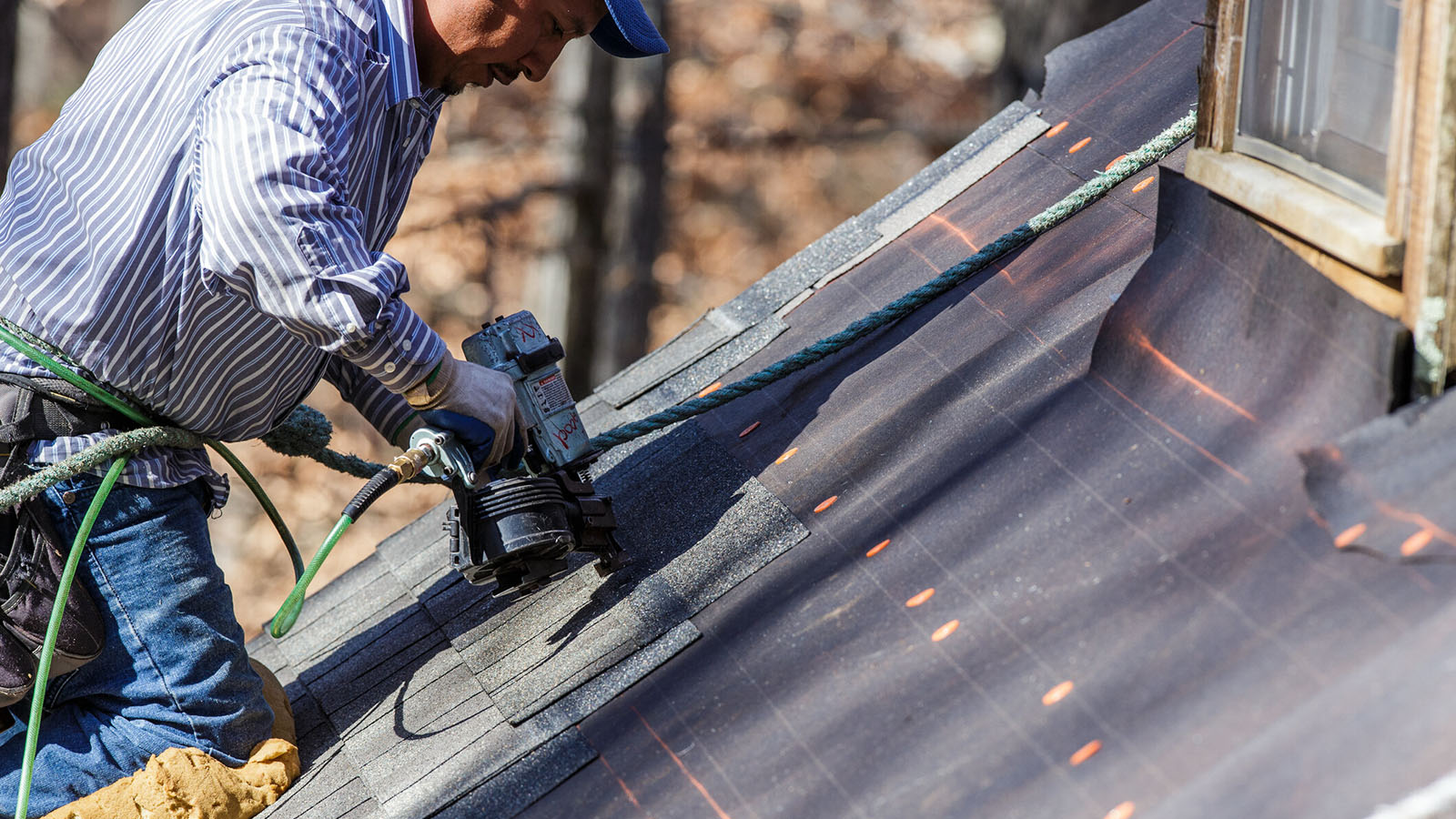
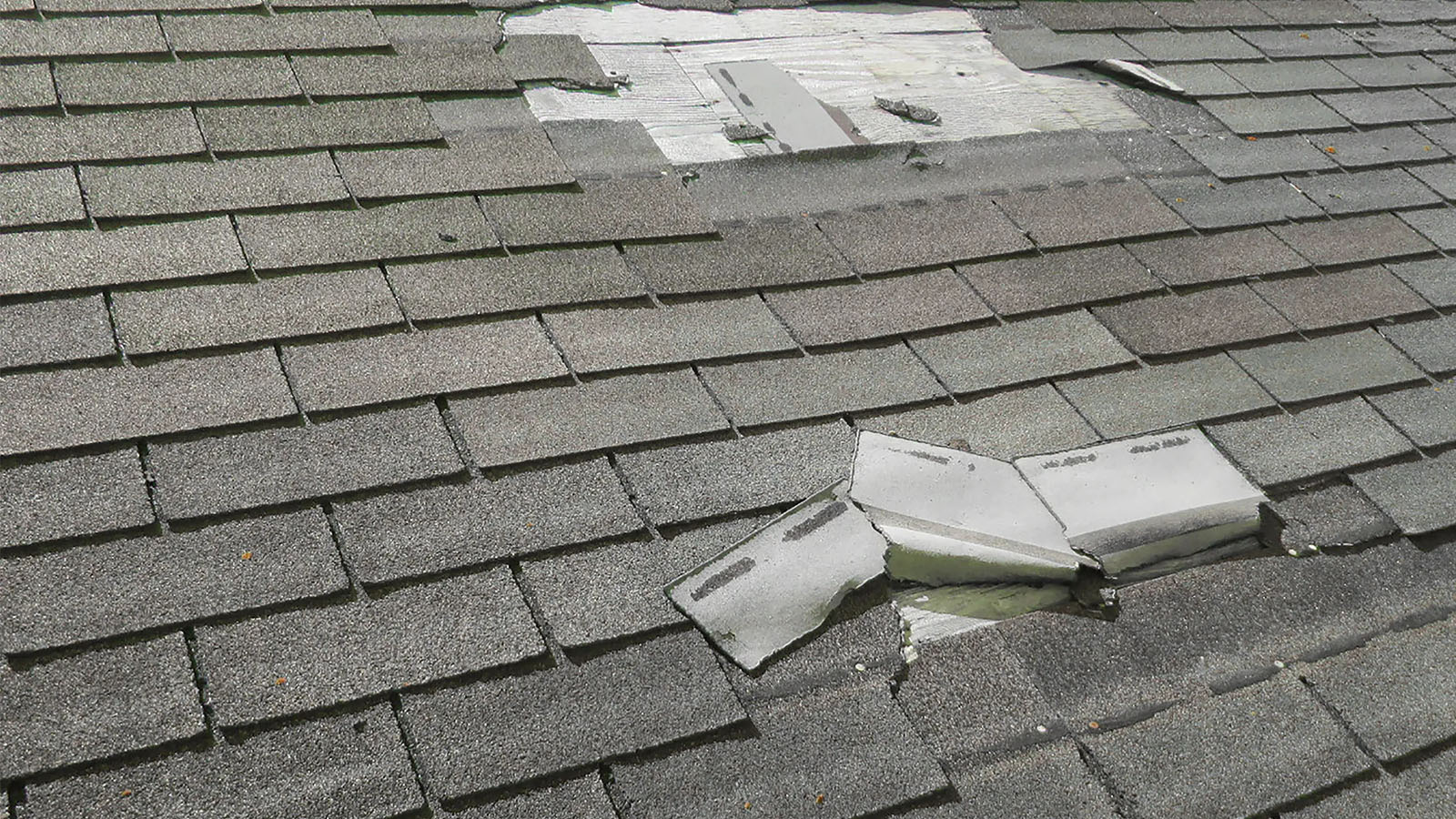
Making the Right Decision
The decision to repair or replace is not taken lightly, as it significantly impacts your home’s safety, functionality and appearance. Consulting with roofing professionals is essential in making this important choice, as they have the experience and knowledge to guide you through the process. A trusted roofing contractor can help you understand your roof’s current condition and the benefits and drawbacks of each option, allowing you to make a well-informed decision that best suits your needs and budget.
Before diving into the specifics of hiring a reliable contractor and the questions to ask during a consultation, it’s crucial to acknowledge the value of professional guidance in this process. A trusted contractor will not only provide you with an accurate assessment of your roof’s condition, but they will also be able to offer expert advice on the most appropriate course of action. By partnering with a skilled professional, you can have peace of mind knowing that your roof will be handled with care, ensuring your home remains well-protected for years to come.
The Importance of Hiring a Reliable Contractor
Hiring a reliable and experienced roofing contractor ensures the job is done correctly and any underlying issues are addressed. Be sure to research local roofing companies, read reviews, and ask for references to find a reputable professional.
Questions to Ask During a Consultation
When consulting with a roofing contractor, ask about their experience, licensing, insurance, and the pros and cons of repairing or replacing your roof. You should also inquire about the estimated cost and timeline for the project and any warranties or guarantees they offer on their work.
Finalizing your decision and moving forward
After a thorough inspection and consulting with a trusted roofing contractor, you can decide whether to repair or replace. Be sure to get a detailed written estimate and contract outlining the scope of work, costs, and timeline for the project before proceeding. By following these steps, you can feel confident in your decision and ensure your home is well-protected for years.
